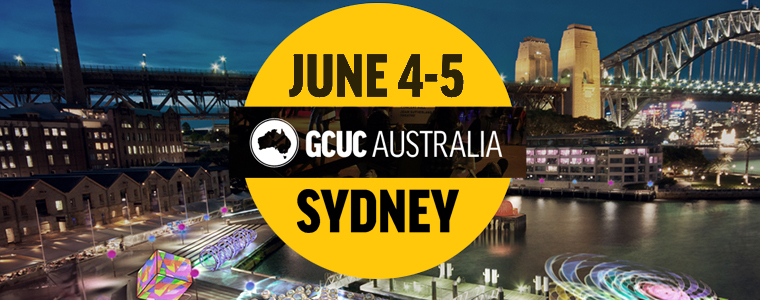What to expect at GCUC Australia

by Melissa Mesku
Sydney will play home to Australia’s first Global Coworking Unconference Conference (GCUC, pronounced “juicy”) on June 4-5. The event is sponsored by the City of Sydney and marks a milestone for the Australian coworking movement.
The conference is a sign that coworking is starting to enter the mainstream, though you wouldn’t have to tell Brad Krauskopf that. He spearheaded the original Australian national coworking conference in 2013. As founder of Third Spaces Group, Krauskopf founded Hub Australia and CoActiv8 and is spearheading the GCUCAU conference as well.
The groundswell of interest activated by the national conference two years ago helped to lay a firm foundation for the growth of coworking, including its use by corporate business and local government. The City of Sydney has been highly involved, opening city properties and providing direct support to other coworking and incubator spaces like Fishburners and Home/Work, and the South Australia government invested in Hub Adelaide and will be speaking at GCUCAU.
GCUCAU aims to continue that cross-pollinating growth. “It’s going beyond the coworking industry. So many are interested in the model: corporates, government, education, design firms, architecture, the sharing economy—a lot of sectors are finding reason to adapt coworking,” said Jan Stewart, project leader for GCUCAU. “We’re expecting about one-third of our attendees to be coworking space owners and managers and about two-thirds from other industries,” she said.
Speakers include national and international coworking leaders like Bob Zheng, founder of People Squared in Shanghai and Beijing and a startup leader in China; Nick Shewring, co-founder of BizDojo in New Zealand; Tim Mahlberg of The Village at National Australia Bank (NAB), a coworking space based in a bank; and Liz Elam, founder of Link Coworking in Austin, TX and founder of GCUC.
There will be ample opportunity for the knowledge sharing between coworking leaders that has characterized every GCUC conference. The second day of the conference is dedicated to small ad-hoc “unconference” sessions devised day-of by attendees. This year’s coworking-industry attendees also include a fair number of members of spaces who are interested in taking part.
“What I’m looking forward to is seeing how people are adapting the coworking model,” said Caroline McLaren, principal at CoActiv8, an organization that establishes and operates coworking spaces and work hubs like Oran Park Smart Work Hub. “People, organizations, governments and companies are finding new ways of applying the model, and I want to hear what’s working for them,” she said.
Australia has approximately 140 coworking spaces and work hubs. Sydney, with the country’s highest concentration of tech startups, is home to 40 of them, and Melbourne has 20. The country has the highest number of coworking spaces per capita (along with Spain), according to a 2012 report by Deskmag.
The rise of coworking in Australia has been attributed to a number of factors and has caused some to speculate about the Australian personality and the way business is done.
“There’s no surprise why I gravitated toward coworking,” said Stewart, who spent 18 years in the U.S. “I miss that entrepreneurialism. Here, people are not as encouraged to stand out. But coworking is helping to change that. We’re starting to burst out of our conditioned ‘tall poppy syndrome,’” she said.
U.S.-based coworking thought leader Alex Hillman wrote in 2013, “Australia seems to have a more relationship-oriented business culture than transaction-oriented business culture, especially when you compare it to that of other major countries… who have led the growth of coworking in the world until now.”
Such speculations are starting to be met with data. In a recent survey conducted by Regus of 22,000 people in 100 countries, Australian respondents reported favorably on collaboration in particular:
Australia was close to the global average for most answers, but 10 percentage points higher when it came to agreeing with the statement that collaborative working places allow start-ups to rapidly expand and contract without hefty penalties. It was also 5 percentage points above the norm on believing that collaborative work places encourage start-ups to mingle with similar firms.
If this conference is anything like the other GCUCs that have come before it, it’s guaranteed to be more than just an industry gathering, but a raucous good time among friends. And—let’s be honest—being in the middle of an epic party like Vivid Sydney can’t hurt. Elam, GCUC’s founder, tried to explain it to the mostly U.S.-based attendees at the fourth annual GCUCUSA in Berkeley, CA in May. She said, “Imagine something like South By Southwest, a TED convention, and a crazy amazing light show all rolled into one. That’s Vivid, the city’s annual festival of light—and the first-ever GCUC in Australia will be going on right in the middle of it.”
Update: GCUCAU announced on May 29 via Twitter that tickets to the event have sold out (though there may be availability for the Day 2 unconference by contacting Jan Stewart at jan@gcuc.co).
No comments yet.